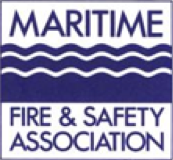Training and PRC
To meet the spill response requirements, the MFSA works with Clean Rivers Cooperative to provide the equipment and trained manpower needed in the event of a release from a covered vessel. Clean Rivers is recognized by the USCG and the states of Oregon and Washington as a qualified response contractor. We work closely to ensure that the right equipment is located in the right places. It is maintained and operated by experienced responders who live throughout the region. The equipment and personnel are regularly drilled to confirm everything is in good working order.
Meeting State Requirements:
The state regulations have established planning standards all along the river system which dictate how much equipment is needed at specific timeframes. MFSA and Clean Rivers have equipment caches up and down the region such that those standards can consistently be met. More detailed information can be accessed through this interactive map.Monthly Training Program:
Every month, staff and response contractors train on various pieces of equipment at different locations. Every effort is made to design the training program so that our crews are prepared to respond to any anticipated event. Topics covered include boat operations, shoreline response, skimming systems, radio and communications equipment set up and use, wildlife equipment deployment, and many more.No Notice Call Out:
In addition to the scheduled training topics, our contractors are tested during no notice call outs. They will be called with no advance notice and told to deploy equipment at a specified location to see if they can meet the planning standards. CRC/NRC: Clean Rivers Cooperative, Inc. is one of the best and most respected oil spill response organizations in the Northwest. Clean Rivers provides its members with a cost-efficient, turn-key solution that exceeds regulatory obligations. The trained personnel of Clean Rivers and its contractors are ready to respond 24 hours a day, 7 days a week. The services provided and the relationships maintained in the region will benefit the communities of the Northwest year-round, even if there is never a spill.
